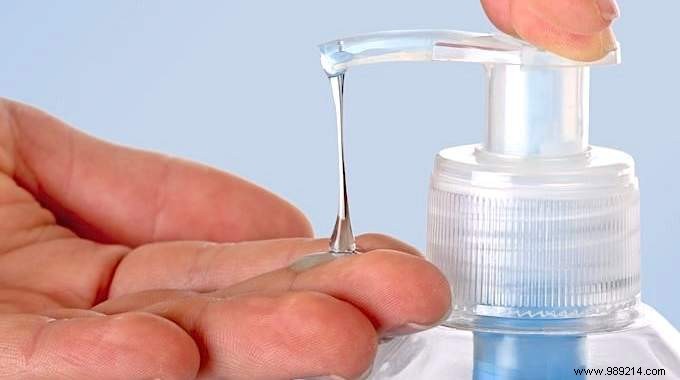
Wondering how to avoid being infected with the coronavirus?
Do you know that the best way to protect yourself is to wash your hands as often as possible ?
It is moreover the Minister of Health who says it:
"Wash your hands more often, every hour if possible."
This is the most effective gesture to protect yourself from the virus and avoid its transmission.
You still have to know how to do it correctly! Here is how to wash your hands well to avoid catching the coronavirus . Watch
Wet your hands with water, turn off the tap and wash your hands with soap.
Rub your hands together palm to palm, then intertwined fingers. Rub the back of your hand with your palm and then with the back of your fingers. Then, wash the wrists and the 2 thumbs by making rotational movements. To finish, rub the nails in the palm of your hand.
Rub your hands together for at least 20 seconds to eliminate as many germs as possible.
Rinse your hands under water, rubbing them thoroughly to dislodge germs for good.
Dry your hands well with a clean towel or air dry them (or do a bit of both). If your hands stay wet, the transmission of viruses is easier. Drying them well reduces this risk.
There you go, you now know how to wash your hands properly to avoid catching the coronavirus :-)
"Washing your hands properly doesn't come easily and most people don't do it well.
It takes a minimum of learning and the technique should be taught to the entire population", recalls Dr. Gayet, infectious disease doctor at the CHRU in Strasbourg.
With this simple and practical technique that doctors recommend, you really limit the risk of being contaminated.
But why do you have to wash your hands when the virus is transmitted by coughing, spittle and saliva?
Because in the end, it is the hands that lead the virus into our body.
For it to infect us, the virus must enter the body.
For this, he needs an entrance door:this door is the nose or the mouth, the lips, a wound or an ocular conjunctivitis.
If someone sick coughs in front of us or sputters, there is little risk that their germs will reach one of these areas directly.
The virus will simply settle on the face, neck, forehead or any other surface.
On the other hand, by touching the face, the hands will pick up the virus.
All you have to do is touch your mouth or rub your eyes to allow the virus to enter your body.
By passing your hands over your face, touching your lips, scratching a pimple, lighting a cigarette, kissing, swallowing a candy... you give the virus the opportunity to develop in your body.
Did you know that statistics show that we touch our face once a minute , according to Jérôme Salomon, Director General of Health? It's scary!
That's why you have to wash your hands very regularly so that you can really eliminate the virus.
- It is the friction caused by the foam that removes germs and dirt from the skin. Be sure to scrub every nook and cranny, because germs hide there.
- If you use soap, wet your hands before applying the soap. Otherwise you risk having dry skin.
- Better to have short nails:long nails are a niche for microbes because they retain moisture and organic matter.
- Also pay attention to the long sleeves that collect all the microbes, bacteria and viruses lying around on the surfaces.
- Water and soap are enough most of the time to eliminate the virus from the hands, especially when you are at home. But if you are outside, you can also use a hydroalcoholic gel.
- If you use a hydroalcoholic solution, you must put at least 3 ml of product and rub for at least 20 seconds, until your hands are dry. Be aware that hand sanitizers do not remove dirt, chemicals, or some types of germs, but it's better than nothing.
- Unlike the gastro virus, know that there is less risk of being infected by contact with an inert object than by a person's cough.
- According to some studies, the coronavirus could survive for 3 hours on objects, under normal conditions.
- And rest assured because a simple washing in the dishwasher can clean the cutlery, glasses and objects put in the mouth by a contagious person.